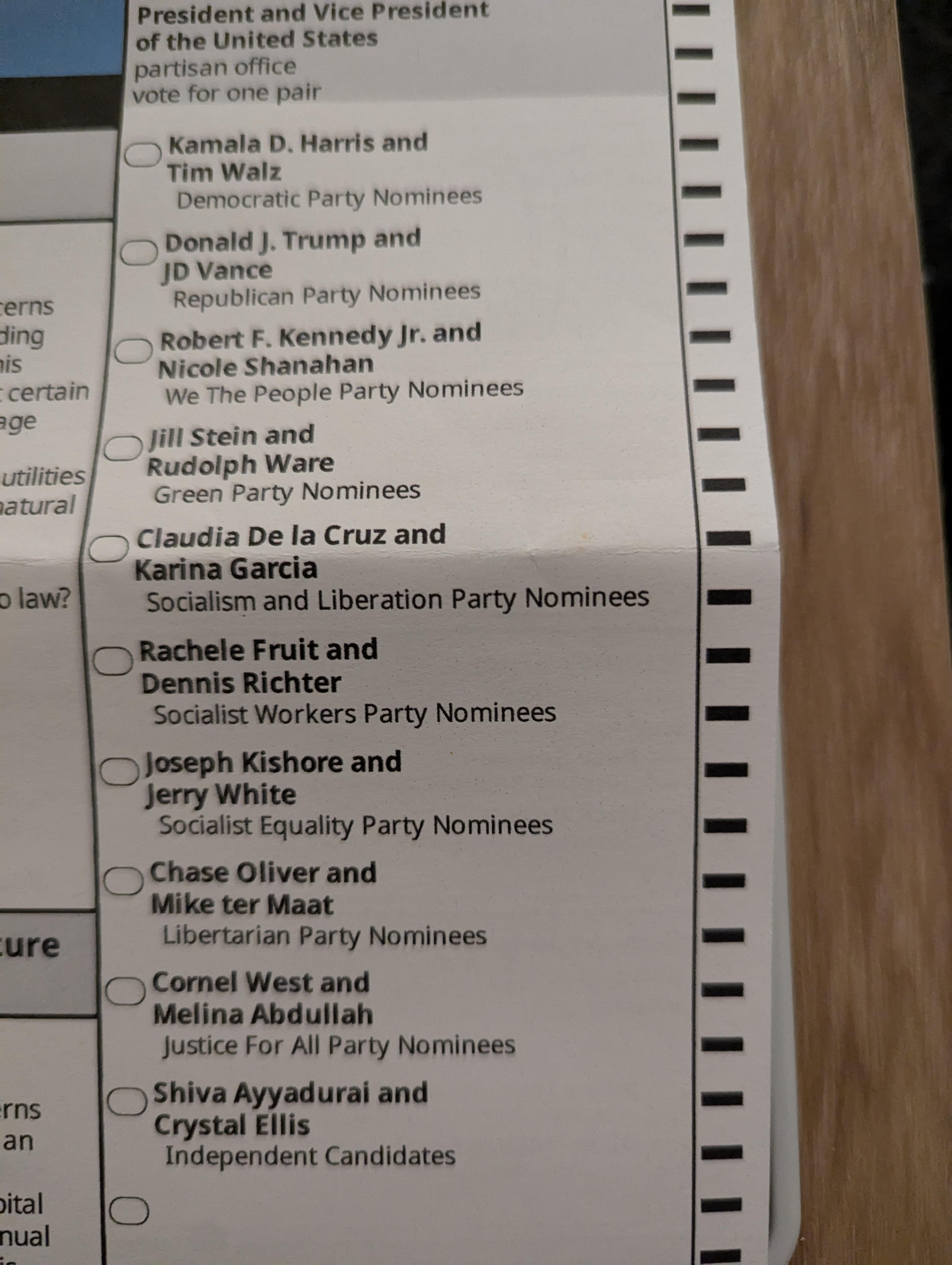There isn't a constitutional mandate that there only be two choices, it's instead a consequence of poor design. The US, with the exception of a few state and local governments that have tried different things, uses something called first past the post voting: each person votes for one candidate, whoever gets the most votes wins the job. Then, we just hold an election in each of a number of geographic districts for each seat. That's intuitive, but actually not a good way to design a democracy, because it forces a two party system. If you have multiple parties that have similar ideas, there's no mechanism for them to form a "coalition" like you might get in other countries. If you win 30% of the votes in a state, split evenly such that you get 30% of the votes for each district, and someone else gets the rest, you don't get 30% of the seats or 30% of the power, you get zero, because you were the loser for each of those seats, and it's winner take all. Thus, any time you have two parties with similar ideas, it is in their interest to combine to form one party to get a higher chance of winning the most votes in a given district, and this process continues until every party of note has consolidated into one of two camps. Those two camps don't consolidate with eachother because they represent views too different to tolerate, and anyone else must join the closest one in order to have a shot of actually winning (unless the election is local enough that personal connections can get you a majority in spite of this, which is why third parties tend to do better at local elections than national ones).
Now, there are going to be some parties left out of this, either those that idealize having more parties to the point of retaining independence at the cost of any chance to actually win at most levels, or those so different from the major ones that they just can't fit with either. The fact that the two party system isn't really originally intended means they still are allowed on the ballot and everything. But since most people voting care about their choice having a hope of winning, it makes pragmatic sense to not vote for them unless the election is very local in scale and you can organize enough people. Thus, only two effective choices even if more are technically on the list.
In some sense, you can say the two major parties basically are like the coalition governments you get in other countries, it's just they're stuck together despite not really liking it, they don't have independent enough identities that they could easily split up and recombine into new ones, at best they could leave and watch their voters stay behind with the old party, becoming irrelevant, and at worst they could sabotage the side closest to them and ensure they get even less power than otherwise. This is why the democrats have such a wide difference in ideals between more conservative and progressive candidates, and the republicans have both "small government" people and "ban everything I don't like" authoritarian types in one party, they're both basically political coalitions stuck together with super glue that have to just go along with whatever most voters in their bloc do or else lose.
